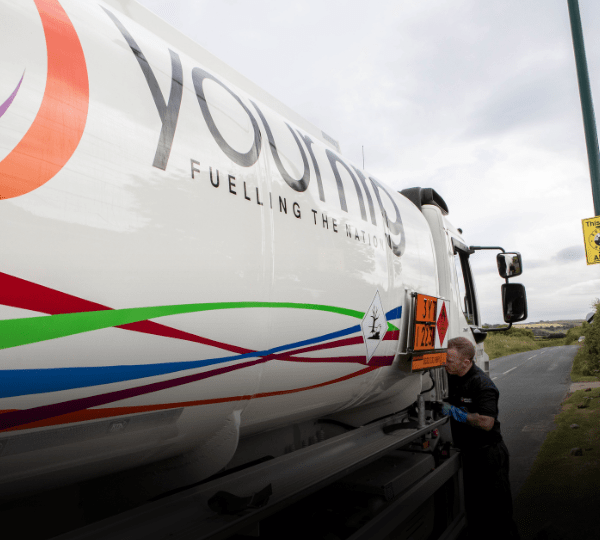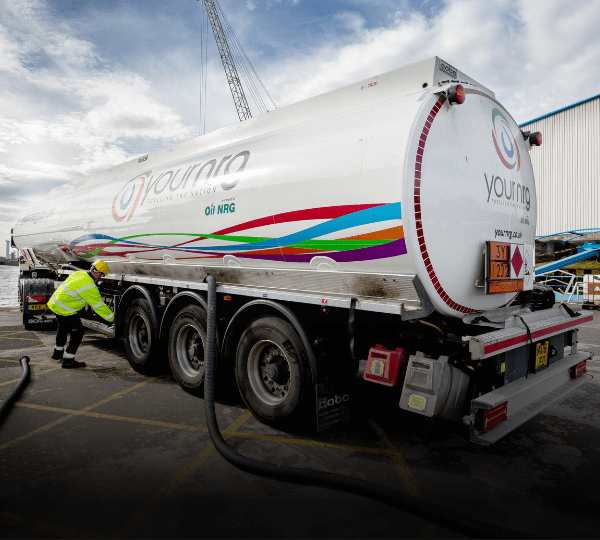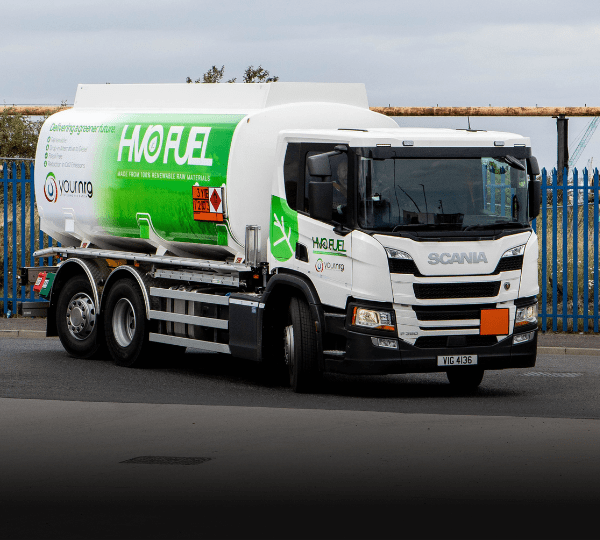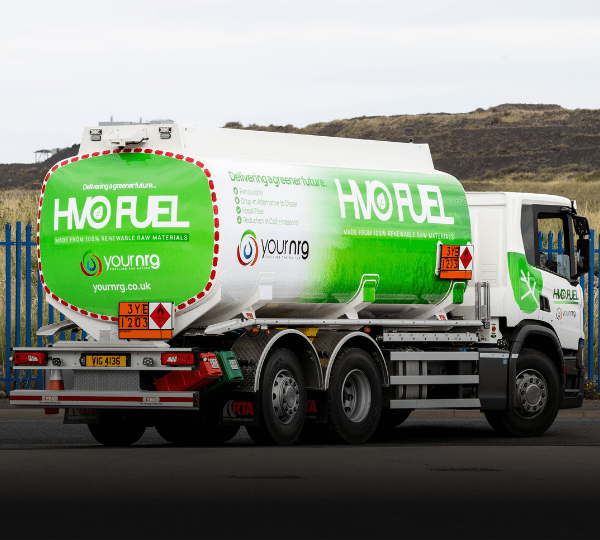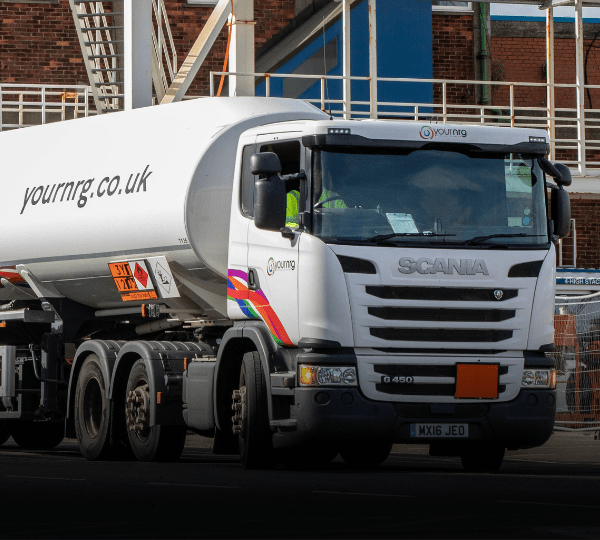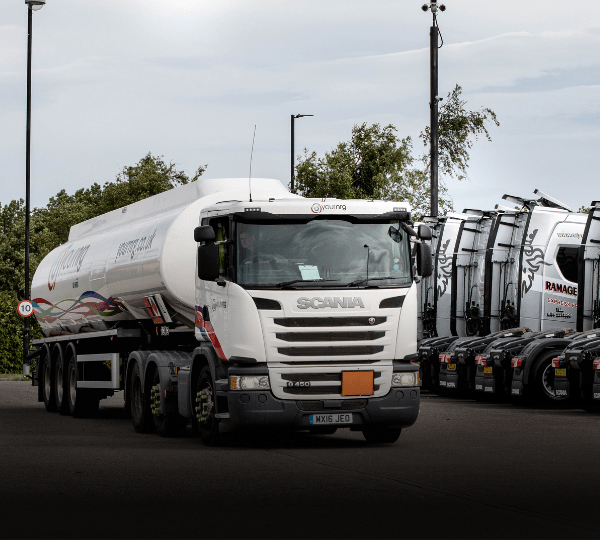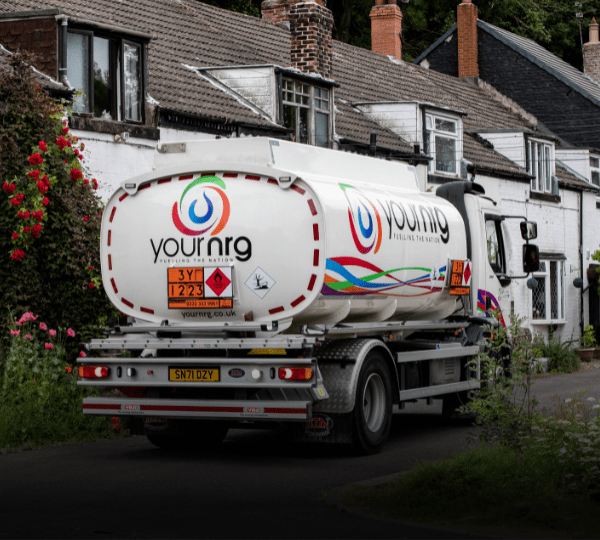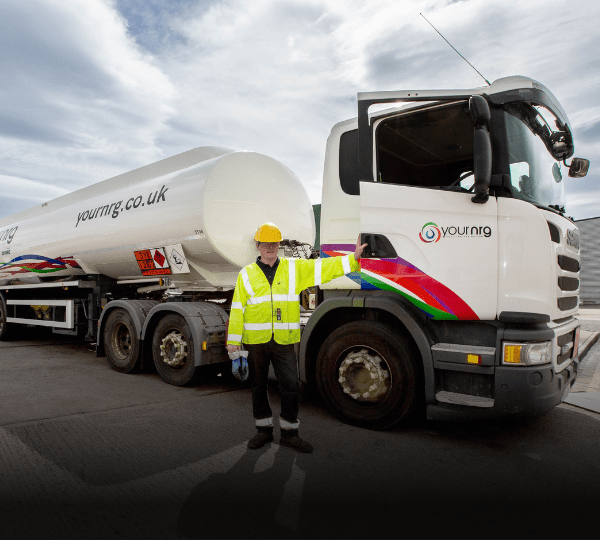Buy HVO Fuel online: Renewable diesel delivered nationwide
Get started with an enquiry about HVO Fuel delivery today. Whether running a fleet, machinery, or multiple sites, HVO Fuel means better performance and lower emissions.


HVO Fuel emissions calculator
Use our emissions calculator to compare your current fuel with HVO Fuel. Select your current fuel type and usage, and our tool will show your potential carbon savings when you buy HVO Fuel.
Which fuel are you using?
How much fuel are you using?
1,000
500L
50,000L
What is HVO Fuel?
HVO Fuel (Hydrotreated Vegetable Oil) is a renewable diesel made from waste oil and fats. It’s a cleaner alternative to red diesel and fossil fuels, and can cut carbon emissions by up to 90%. HVO is a drop-in replacement that works with most diesel engines without modification and offers high performance, even in cold weather. This makes it a popular choice with HVO Fuel distributors and businesses.
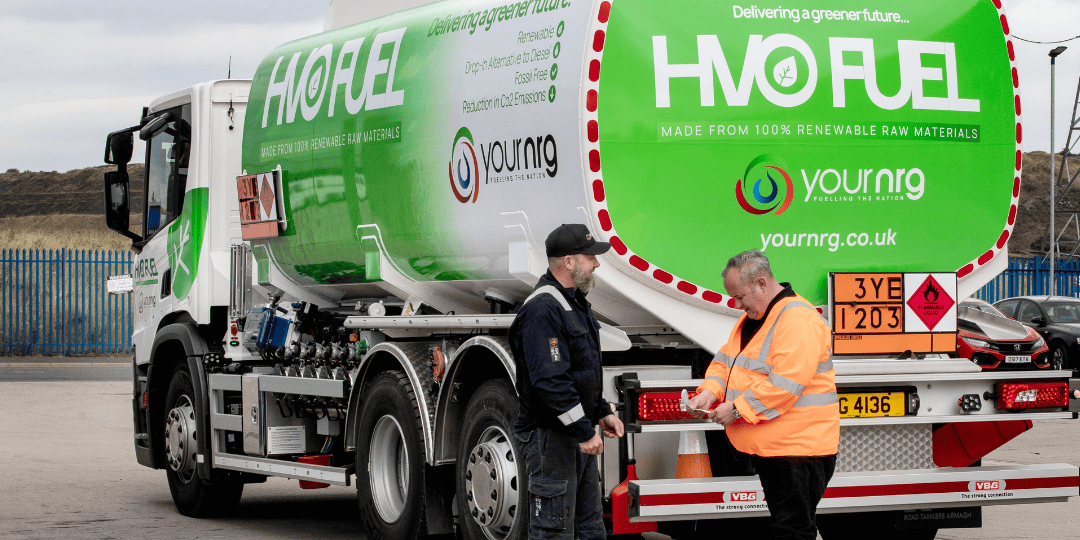
HVO Fuel Knowledge Hub
Everything you need to evaluate HVO Fuel in one place, our collection of guides and tools are designed to make switching from diesel simple. The Knowledge hub brings together clear, practical resources to help you assess whether it's a fit for your operations and make an informed decision.
Why choose HVO Fuel over regular diesel?
Business and fleet owners choose HVO Fuel over regular diesel because its fossil-free composition reduces greenhouse gas emissions by up to 90%. HVO also burns more efficiently, lasts longer in storage, and produces fewer particulates without affecting engine performance. By using HVO Fuel, business owners can meet any Net Zero or ESG targets they set.

What are the benefits of HVO fuel?
There are many benefits to HVO Fuel, as it is a cleaner, more sustainable alternative to diesel. It helps businesses lower emissions, meet compliance targets, and keep vehicles and machinery running at full performance.
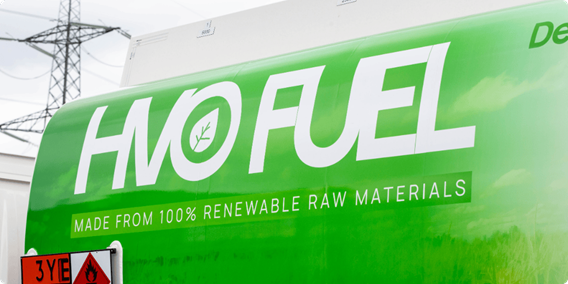
Biodegradable and renewable
HVO Fuel is made from 100% renewable waste products and breaks down naturally, making it one of the cleanest fuels supplied by UK HVO Fuel distributors.
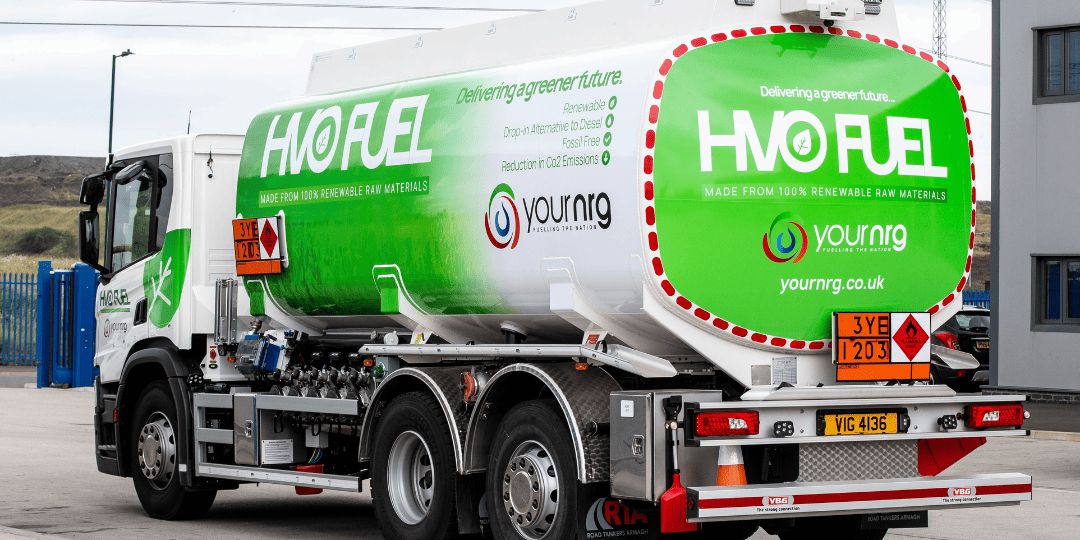
Stable in storage
Unlike regular diesel, HVO stays fresh in storage for up to 10 years. Ideal for businesses relying on bulk HVO Fuel deliveries for standby generators.
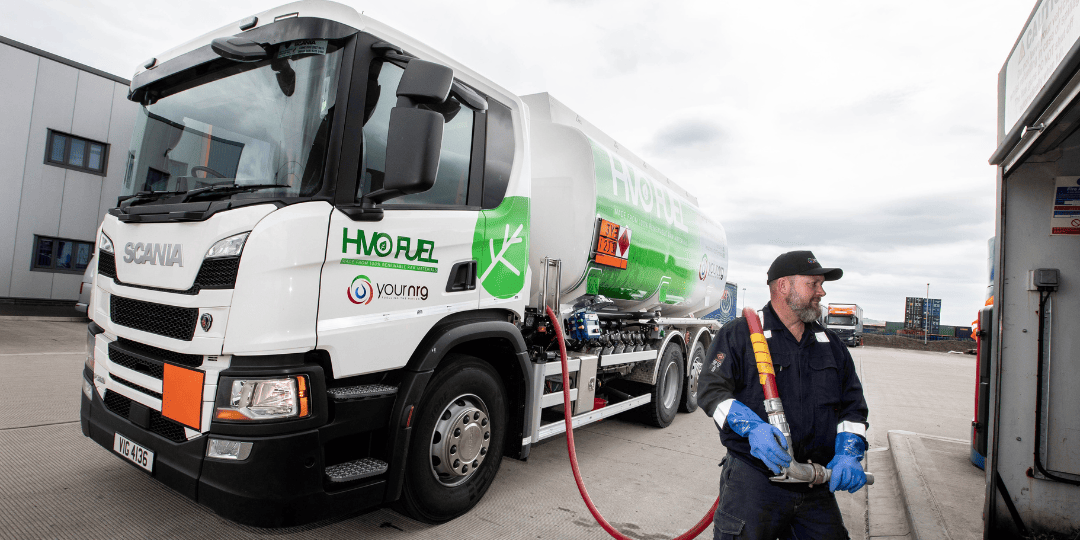
Up to 90% less emissions
Switching to HVO Fuel can cut greenhouse gas emissions by up to 90%, helping your business meet sustainability targets without changing your equipment.

OEM-endorsed
It is approved by many Original Engine Manufacturers (OEMs), giving fleet operators and HVO Fuel suppliers the confidence to use it at scale.

Direct drop-in replacement
HVO Fuel is a like-for-like swap for diesel. No engine changes, no downtime. Most users can buy HVO Fuel today and start using it straight away.
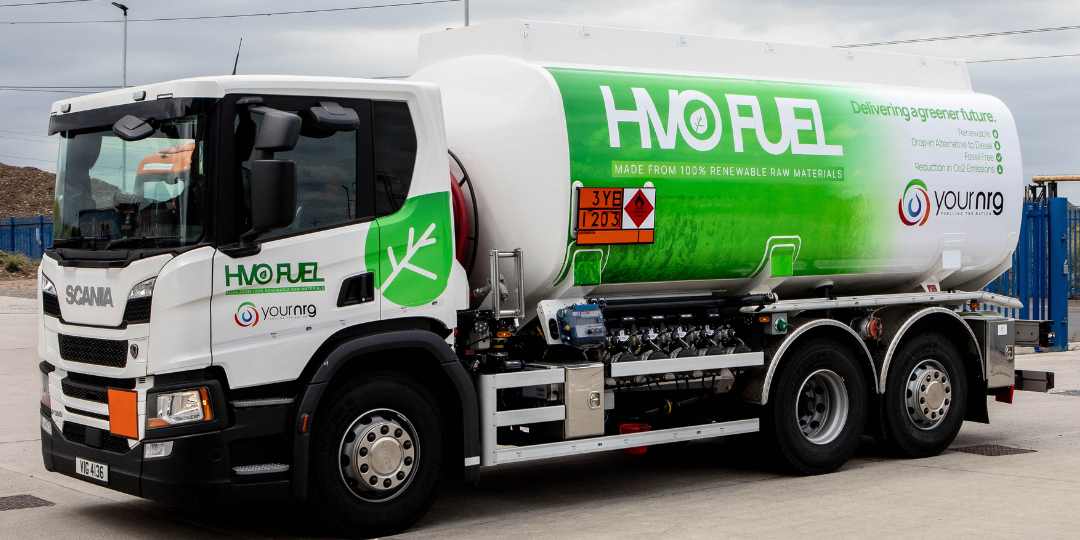
Superior cold-weather performance
HVO performs reliably in freezing conditions, making it a preferred choice for winter use in many parts of the world.

Comprare HVO Fuel to Standard White Diesel.
HVO Fuel is produced from renewable sources

Made from waste oils, fats, and sustainable biomass.
Standard Diesel.
Fossil-based, non-renewable resource.
Your HVO Fuel Breakdown.
Take a look at how your business can meet it’s Net Zero targets at a glance.
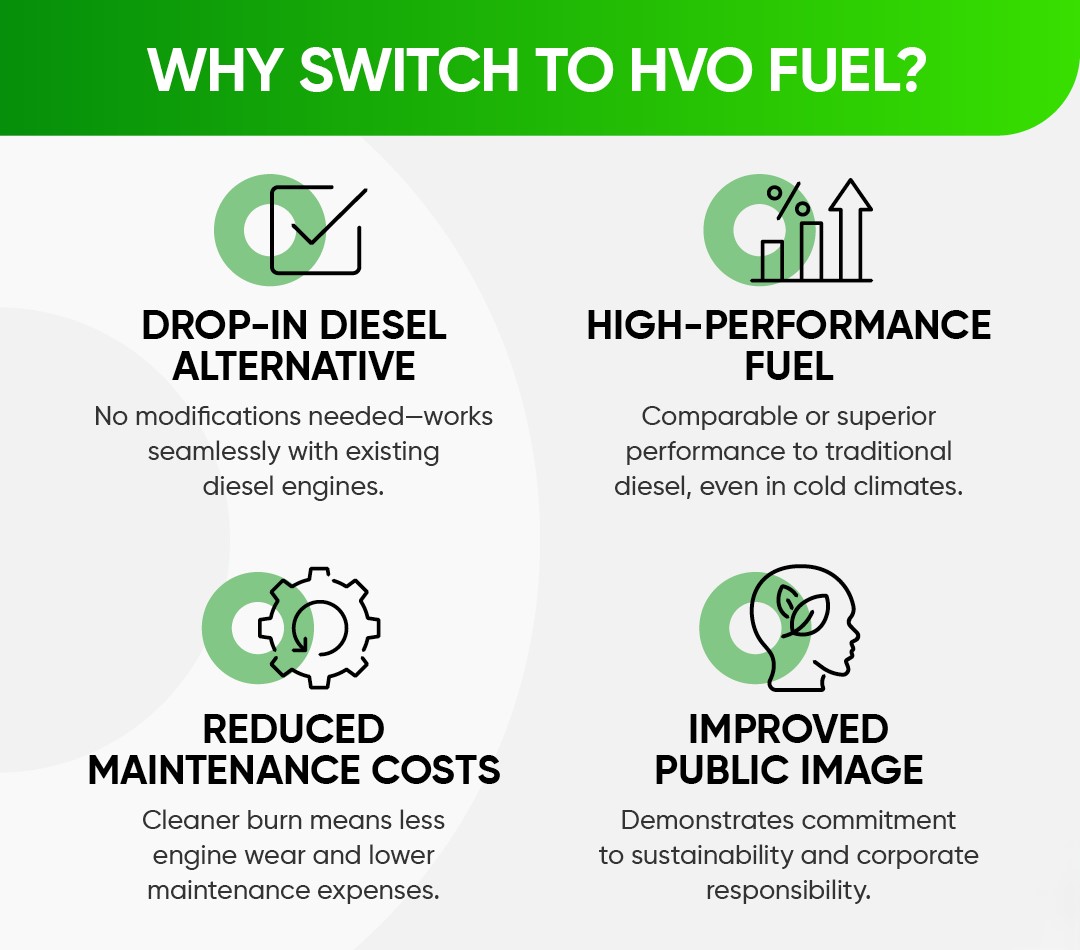
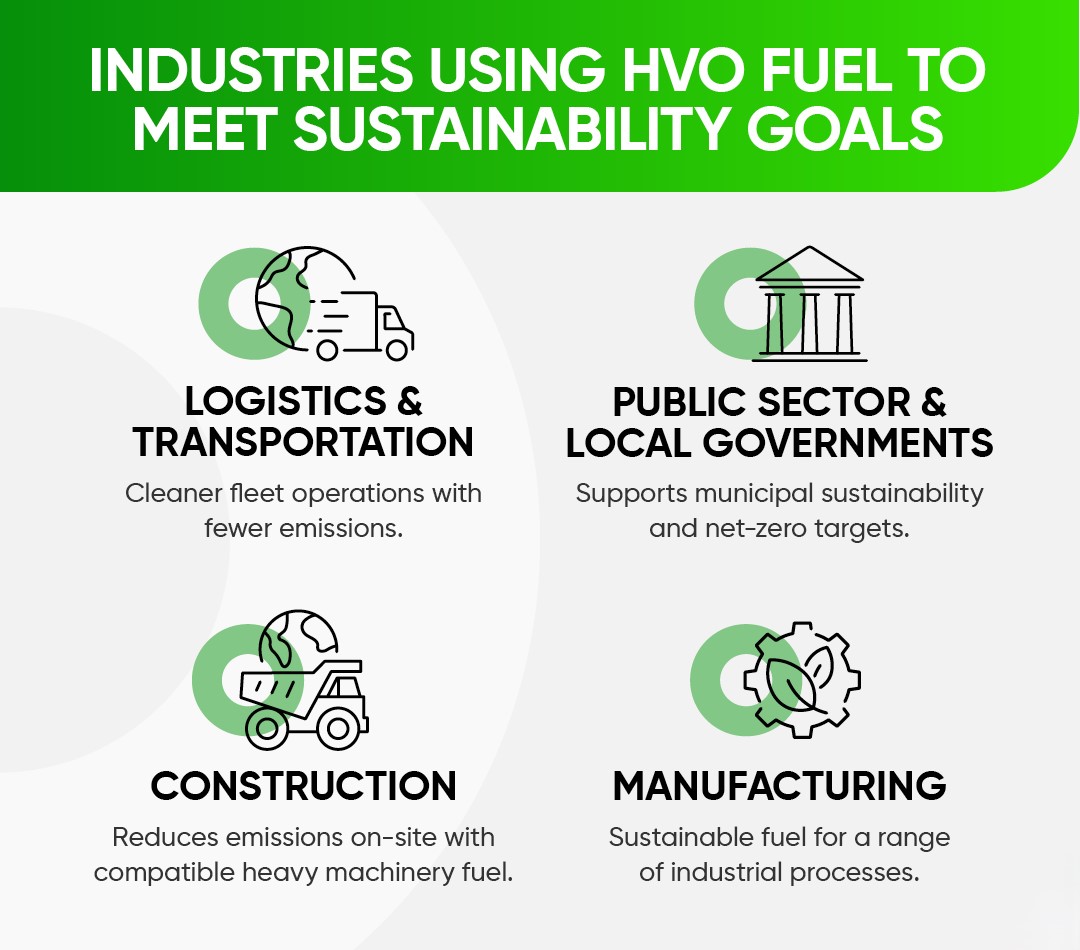
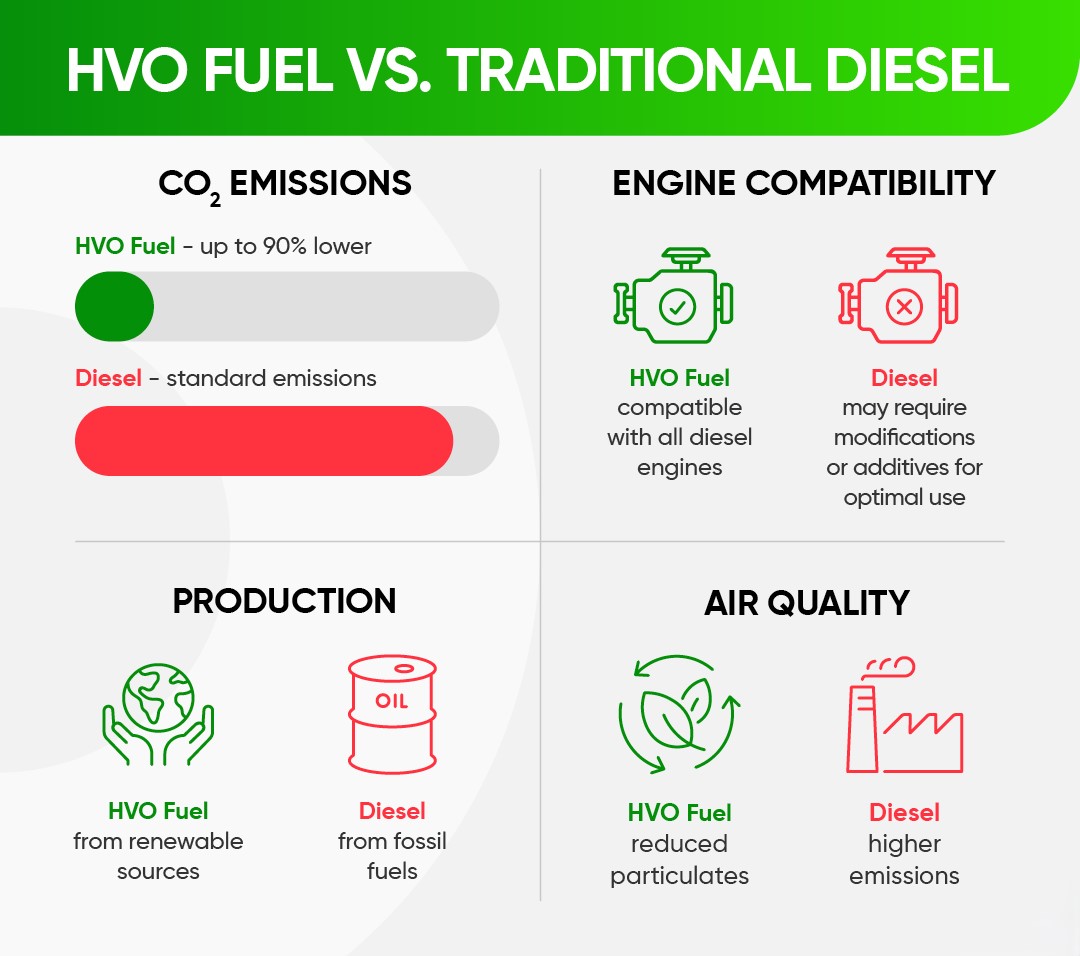
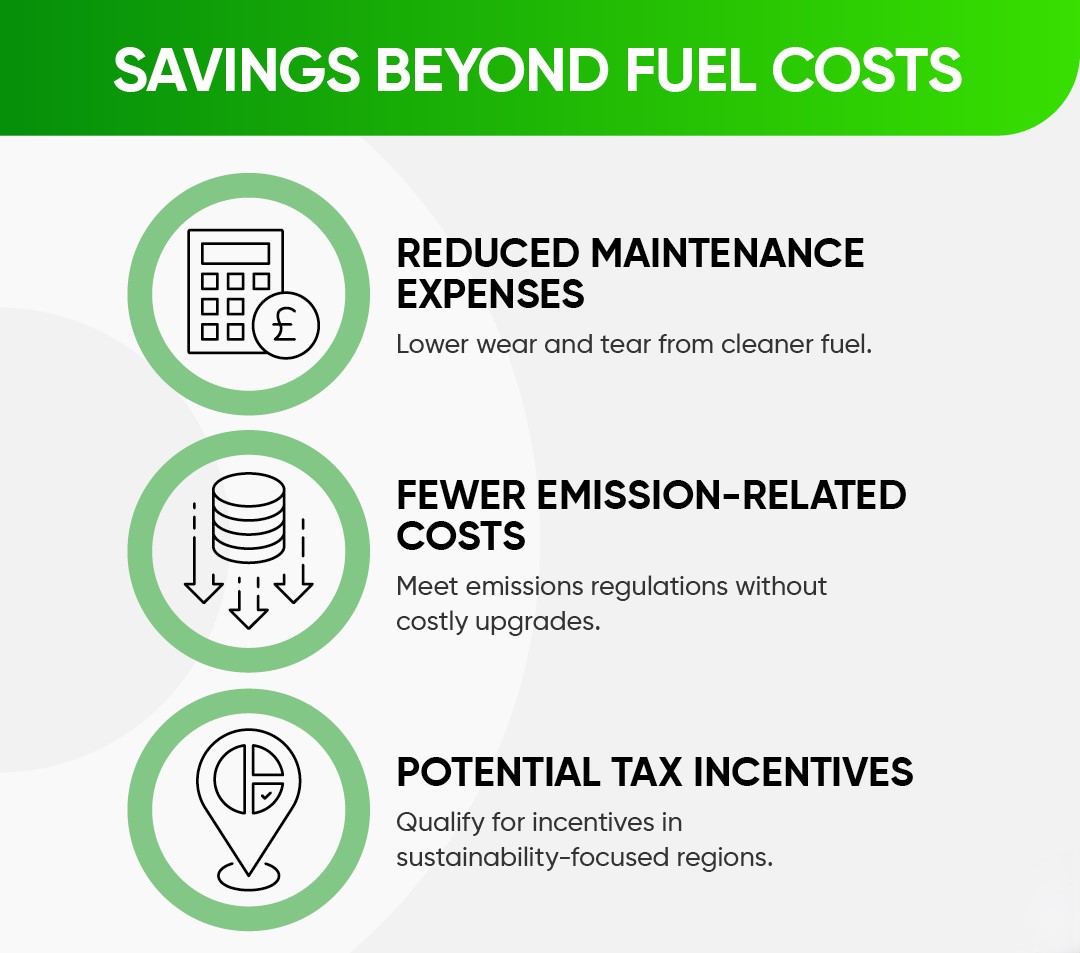
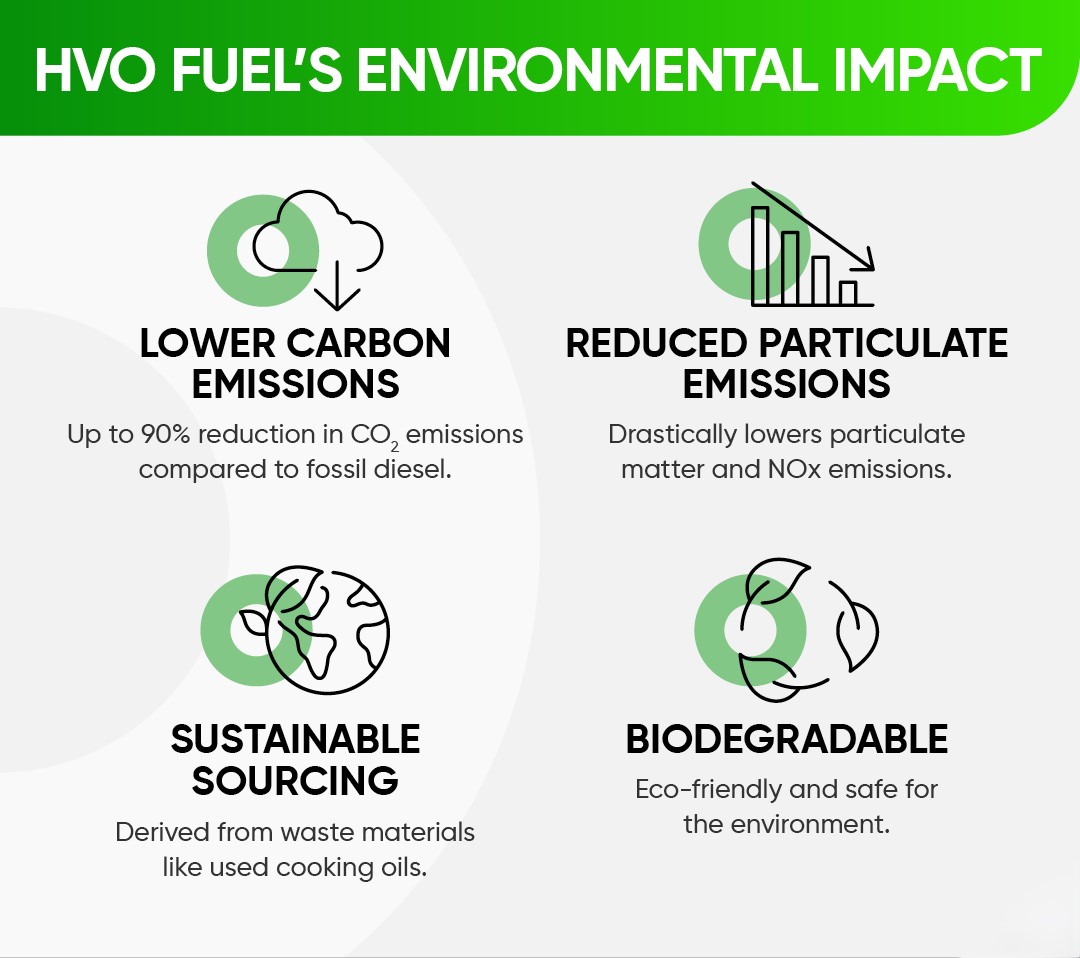
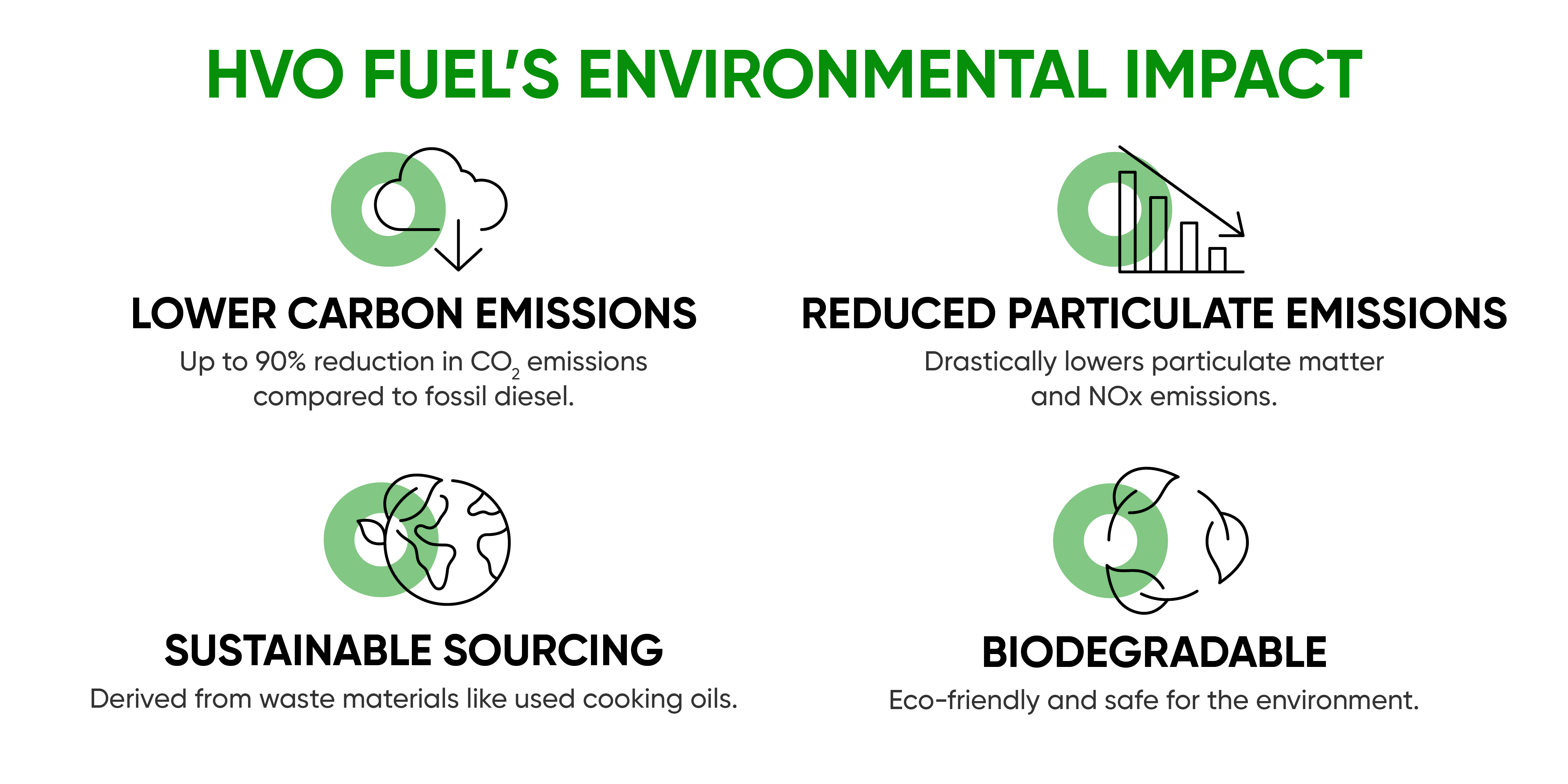
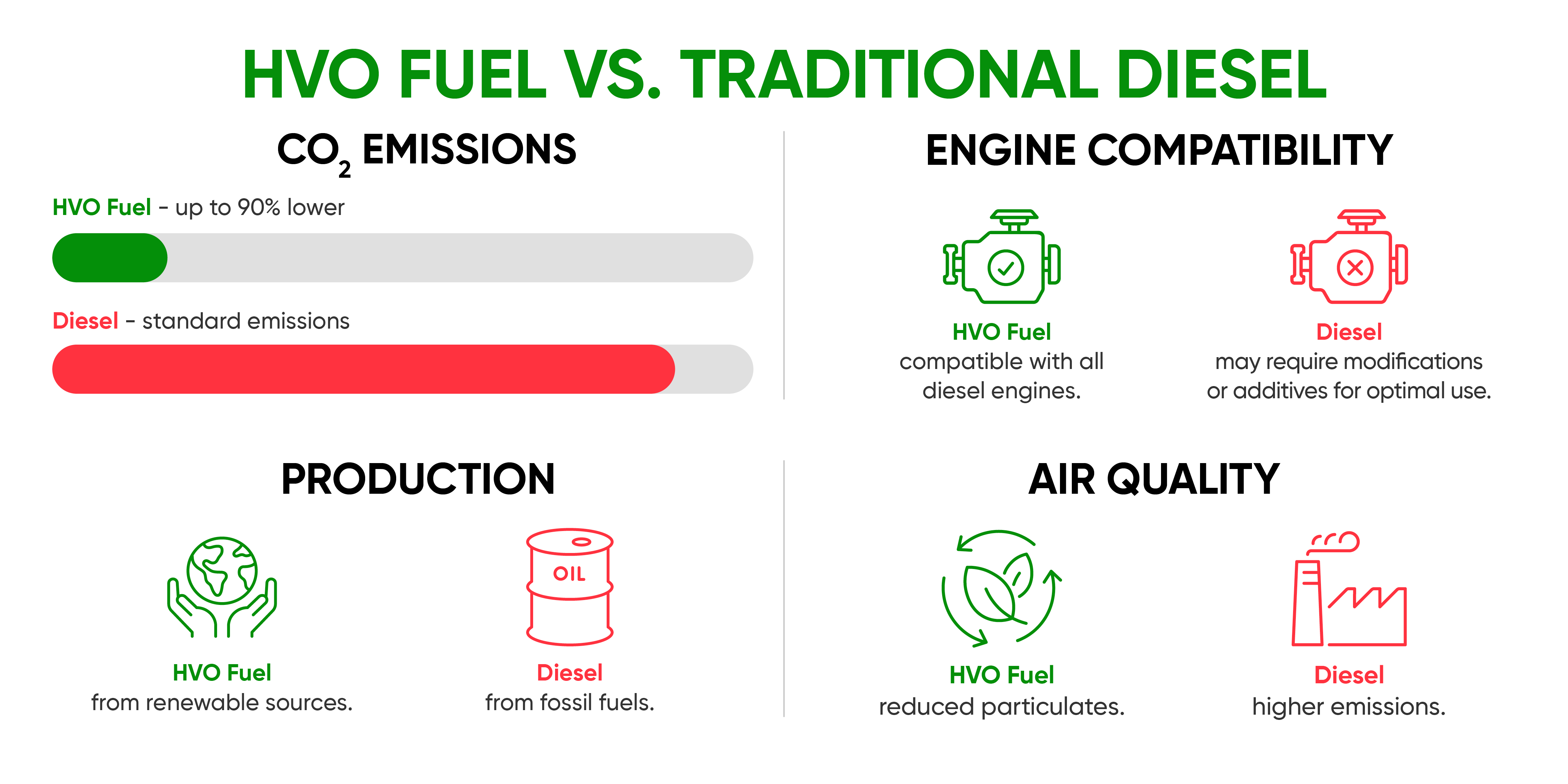
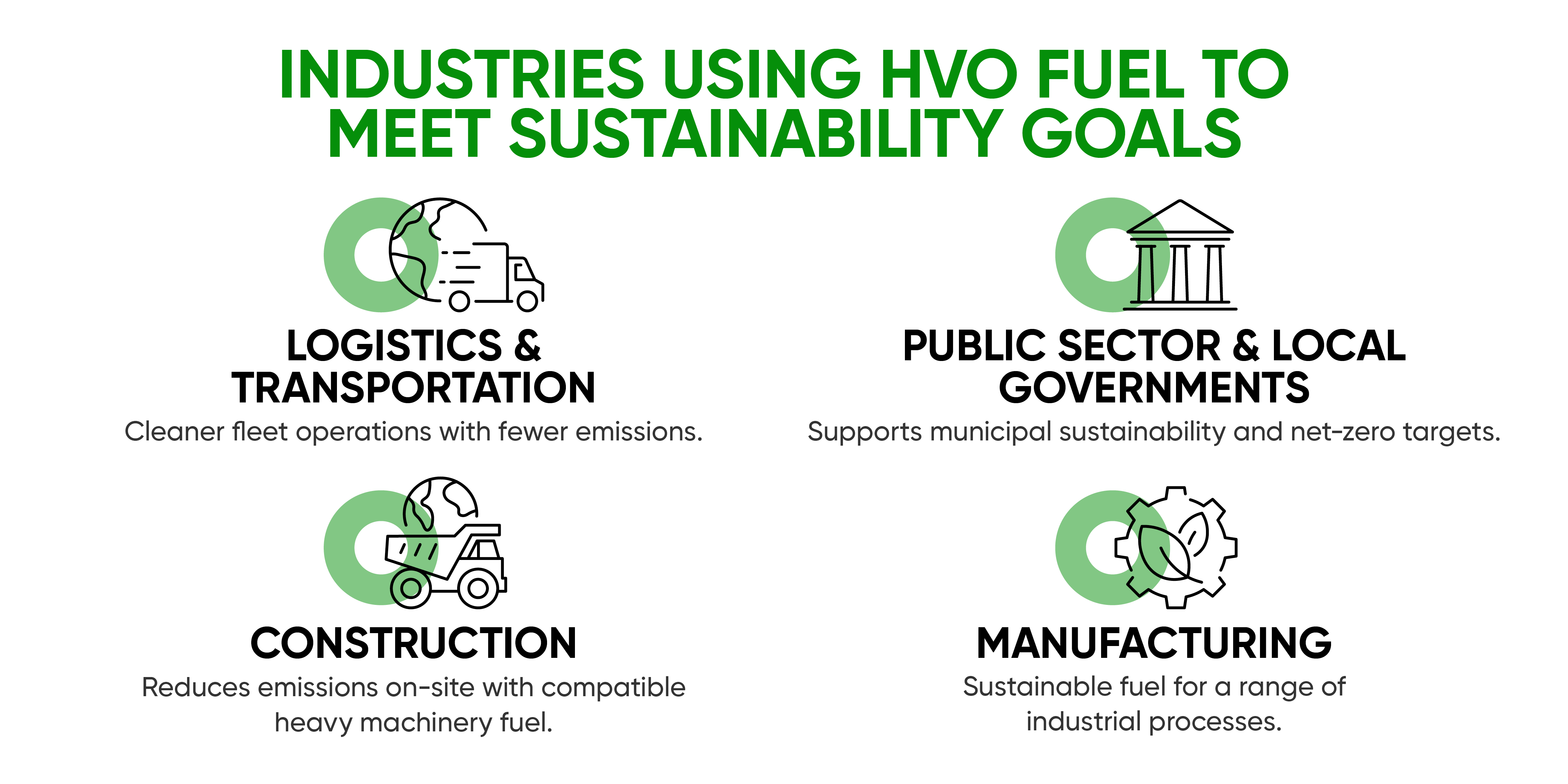
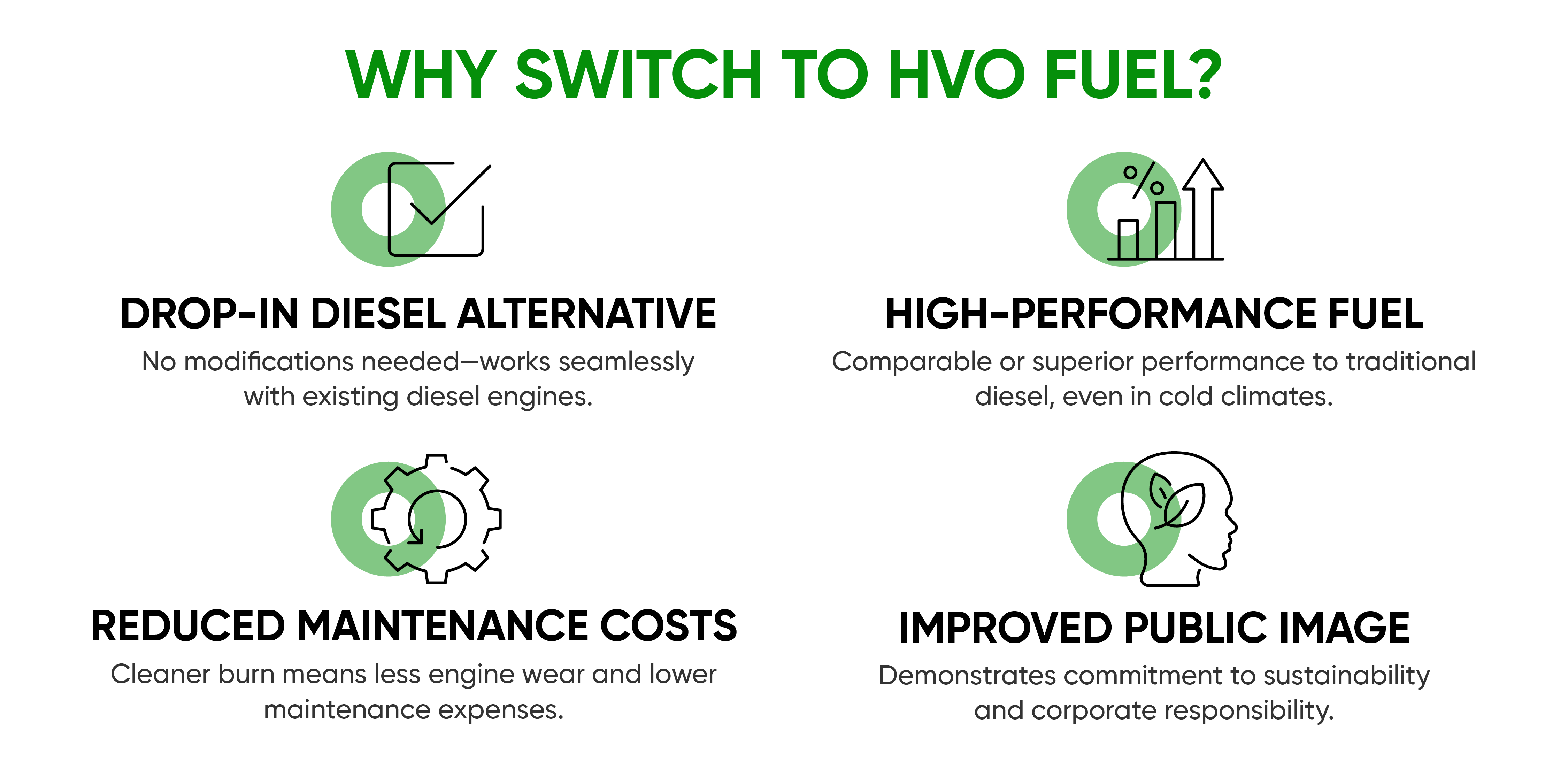
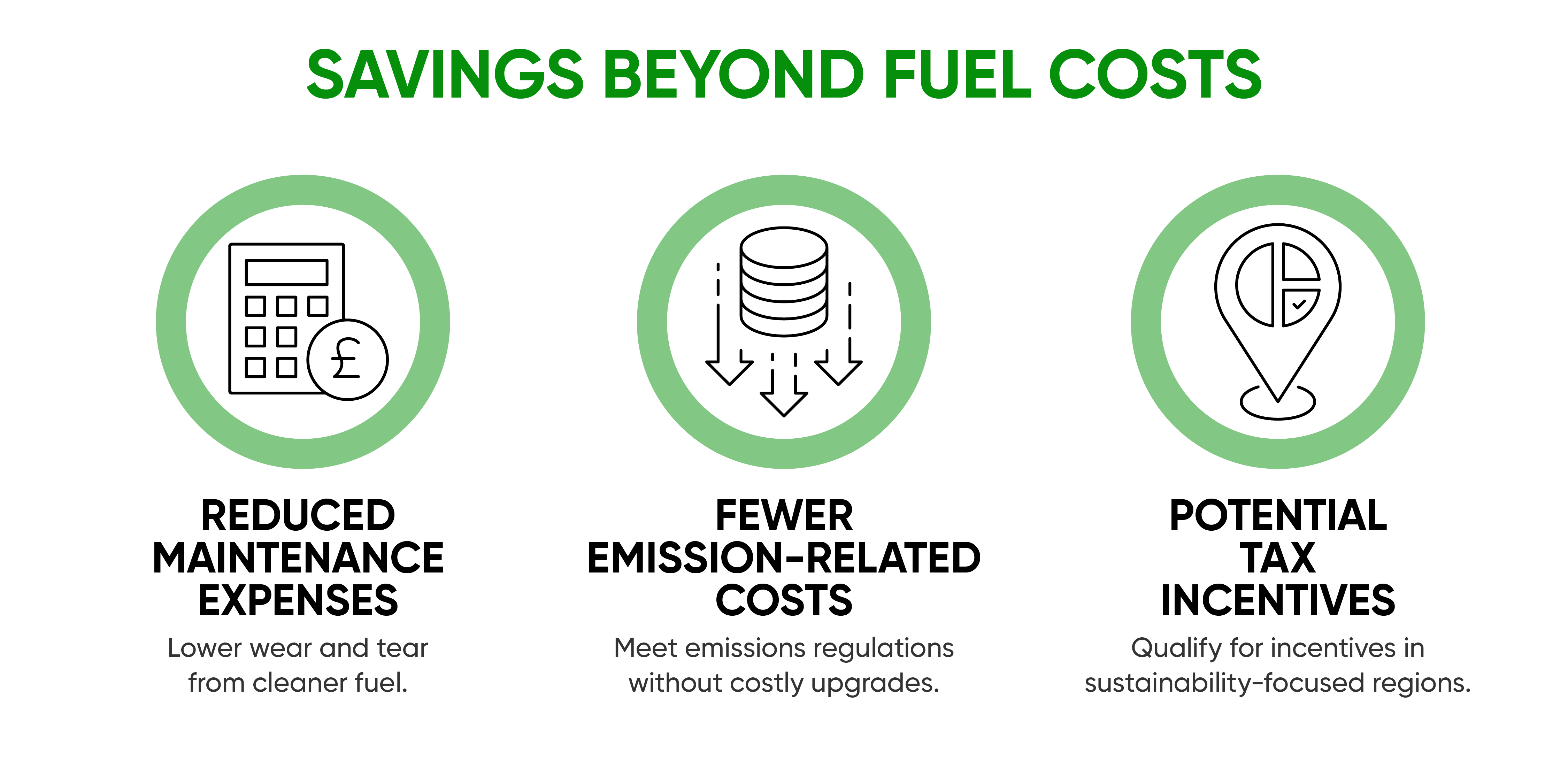
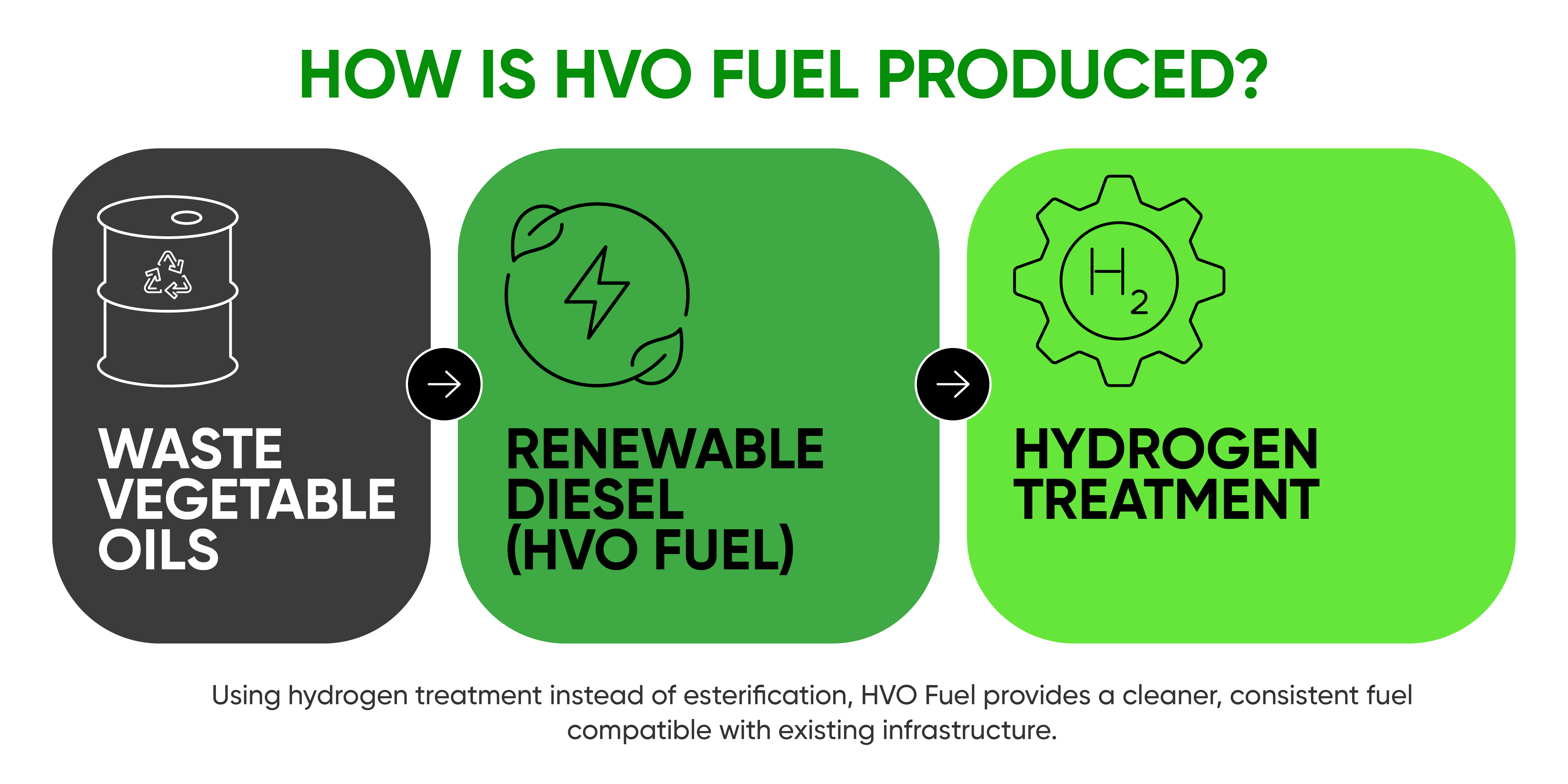
Your HVO questions answered.
Got questions about HVO Fuel? From delivery and cost to engine safety and emissions, here’s everything you need to know before switching to a trusted HVO Fuel supplier.
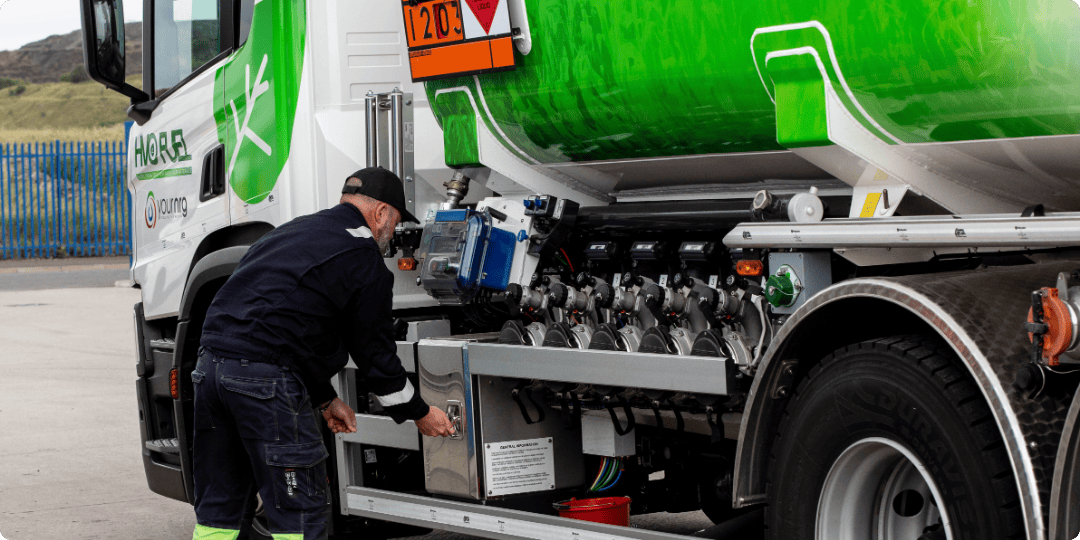
What is HVO Fuel?
HVO Fuel is a cleaner-burning alternative to fossil diesel, made from renewable feedstocks. It’s a drop-in replacement approved by major engine manufacturers and supplied by HVO Fuel distributors across the UK.
How is HVO Fuel produced?
HVO Fuel (Hydrotreated Vegetable Oil) is produced by refining waste oils and fats through a hydrotreatment process. This makes a renewable diesel that performs like traditional diesel but with up to 90% lower emissions.
What are the main environmental benefits of HVO Fuel?
HVO Fuel cuts greenhouse gas emissions by up to 90%, reduces particulates, and supports the use of waste materials instead of fossil fuels. Many businesses choose HVO Fuel delivery as part of their sustainability strategy.
Can HVO Fuel be used in diesel engines and equipment?
Yes, HVO Fuel can be used with most diesel engines and equipment without any modifications. It's perfect for fleets, generators, machinery, and off-road equipment.
How does HVO Fuel compare to biodiesel?
Unlike biodiesel (FAME), HVO Fuel has a longer shelf life, performs better in cold weather, and is widely OEM-approved. It’s also more stable in storage, making it the preferred choice for many businesses and fleets.
What is the storage life of HVO Fuel?
HVO Fuel can be stored for up to 10 years without degrading, unlike standard diesel or biodiesel. This makes it a smart choice for bulk orders and standby systems supplied by HVO Fuel distributors.
Is HVO Fuel more efficient than diesel?
HVO Fuel offers similar or better combustion efficiency than diesel while producing fewer emissions. It runs clean, reduces maintenance, and is trusted by HVO suppliers for long-term performance.
Are more businesses looking to transition to HVO Fuel?
Yes, businesses across transport, construction, logistics, and agriculture are switching to HVO Fuel to meet sustainability targets. With more HVO Fuel suppliers entering the market, availability and delivery options have grown nationwide.
How does HVO Fuel help businesses meet sustainability goals?
HVO reduces carbon emissions, supports waste-to-energy circularity, and helps companies meet environmental standards. Many organisations rely on HVO Fuel delivery to align with Net Zero and CSR commitments.
What is the cost comparison between HVO Fuel and regular diesel?
HVO Fuel can cost slightly more per litre than red diesel, but savings on maintenance, compliance, and carbon offsetting often outweigh the difference. HVO Fuel suppliers also offer bulk pricing to keep costs competitive.
Can HVO Fuel be delivered in bulk for my business?
Yes, HVO Fuel is available in bulk volumes with flexible delivery options. Most HVO Fuel distributors offer 24–48 hour turnaround and emergency fuel delivery for UK businesses.
What types of businesses benefit from HVO Fuel?
HVO Fuel is used in businesses across haulage, agriculture, construction, and event sectors. If you rely on diesel engines or red diesel, switching to HVO Fuel can reduce emissions without affecting performance.
Is HVO Fuel safe to use in my existing diesel equipment?
Yes, HVO Fuel meets EN15940 standards and is approved by leading OEMs. It’s safe to use in most existing diesel engines without modifications, making it an easy swap through your chosen HVO supplier.
Case Studies
See how we are partnering likeminded businesses to their sustainable goals.

North East Procurement Organisation
NEPO trial 'Future Fuel' HVO Fuel to reduce their environment impact.
The Zemo Partnership Renewable Fuels Assurance Scheme
The Zemo Partnership is an independent, not-for-profit organisation backed by government and industry, supporting cleaner transport through verified low-emission fuels like HVO.
As part of its work, Zemo manages the Renewable Fuels Assurance Scheme (RFAS), which helps customers trust the claims made by HVO suppliers. The scheme verifies greenhouse gas (GHG) emission reductions and the sustainability of raw materials used in renewable diesel, including HVO Fuel.
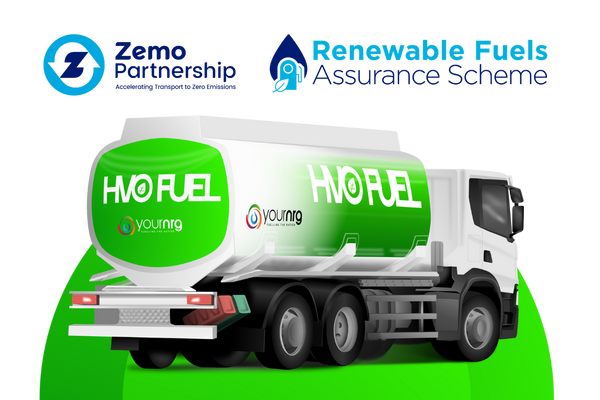
Advice Hub
The Your NRG advice hub is packed with advice and guidance on using HVO to reduce your greenhouse gas emissions, written by industry experts.

What is HVO Fuel?
HVO or hydrogenated/hydrotreated vegetable oil is a renewable fuel that is ...
Date published: 21/09/2022
How is HVO Fuel Made?
You may already know that HVO stands for hydrotreated or hydrogenated veget...
Date published: 21/09/2022
Is HVO Fuel Sustainable?
Hydrogenated or hydrotreated vegetable oil (HVO) fuel is created using 100%...
Date published: 21/09/2022Why choose us as your HVO Fuel supplier?
Trusted by businesses nationwide
We’re a proven HVO Fuel supplier with years of experience supporting fleets, sites and machinery across the UK.
Specialist knowledge and support
Our team knows renewable diesel inside out. Whether you’re planning a switch or need urgent HVO Fuel delivery, we’ll guide you every step of the way.
Straightforward pricing
Thanks to our extensive supply network, we can offer competitive rates on bulk HVO Fuel. No hidden costs, no last-minute surprises.
Certified for sustainability
We’re RFAS-certified under the Zemo Partnership scheme, giving you a verified HVO Fuel supply that meets the UK's strict environmental standards.
Why choose us as your HVO Fuel supplier?
Trusted by businesses nationwide
We’re a proven HVO Fuel supplier with years of experience supporting fleets, sites and machinery across the UK.
Specialist knowledge and support
Our team knows renewable diesel inside out. Whether you’re planning a switch or need urgent HVO Fuel delivery, we’ll guide you every step of the way.
Straightforward pricing
Thanks to our extensive supply network, we can offer competitive rates on bulk HVO Fuel. No hidden costs, no last-minute surprises.
Certified for sustainability
We’re RFAS-certified under the Zemo Partnership scheme, giving you a verified HVO Fuel supply that meets the UK's strict environmental standards.
Get started with an enquiry about HVO Fuel delivery today. Whether running a fleet, machinery, or multiple sites, HVO Fuel means better performance and lower emissions.












